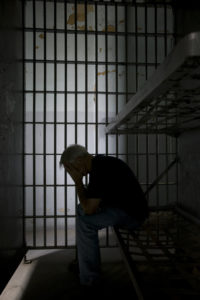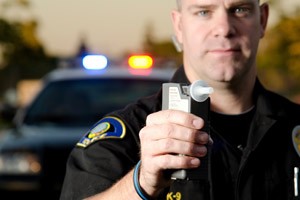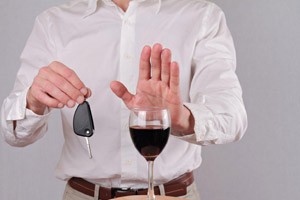 As previously discussed, if you are convicted of drunk driving, drugged driving, or driving high in New Jersey, one of the most serious penalties you can face is having your license suspended. If you are subsequently convicted for driving with a suspended or revoked license, it becomes a felony offense and the Court will sentence you to jail. This sentence could be 180 days or more! Also, when you serve this 180-day jail sentence, there is absolutely no parole under the law.
As previously discussed, if you are convicted of drunk driving, drugged driving, or driving high in New Jersey, one of the most serious penalties you can face is having your license suspended. If you are subsequently convicted for driving with a suspended or revoked license, it becomes a felony offense and the Court will sentence you to jail. This sentence could be 180 days or more! Also, when you serve this 180-day jail sentence, there is absolutely no parole under the law.
In the past, some judges have chosen to be lenient or forgiving to defendants by letting them serve these terms intermittently, meaning that the jail sentence could be served just on certain weeknights or on weekends with breaks in between. In the recent case of State v. Rodriguez, decided at the end of May, the New Jersey Supreme Court made it very clear that this kind of intermittent service was no longer allowed.
Intermittent Service of a Jail Term
In certain cases, New Jersey law allows a judge to issue a sentence with certain considerations, like being permitted to just serve time in jail at night or on weekends so that the defendant can continue to work and provide for his or her family or participate in training or educational programs. Under N.J.S.A. 2C:43-2(b)(7), a judge is permitted to break up a jail term, as long as the defendant serves his or her entire sentence. This is because periodic release during an intermittent sentence does not reduce the total time of confinement but only interrupts the days of custody.
State v. Rodriguez
In State v. Rodriguez, the Supreme Court considered five different defendants in a consolidated matter. In all of those cases, defendants had previous DUIs/DWIs and had their licenses revoked. They were subsequently arrested and convicted of driving on a suspended license, resulting in 180-day jail terms under N.J.S.A. 2C:40-26. During sentencing, the trial court judge allowed three of the defendants to serve their jail sentences on the weekends, while two others served their sentences four nights per week.
State prosecutors appealed the trial judge’s decision and argued that intermittent sentencing was forbidden by the law for defendants convicted of driving with a suspended license. The defendants countered, arguing that intermittent release for driving on a suspended license is no different than how it could be applied for any other crime under N.J.S.A. 2C:43-2(b)(7), pursuant to the judge’s discretion. The defendants also argued that periodic service was not barred under the prohibition against early release or parole, since defendants were still required to serve all 180 days of the prison term.
The Supreme Court ultimately sided with the state prosecutors, deciding that the Drunk Driving Suspended License law requires a convicted defendant to serve his entire sentence in one continuous period. Ultimately, this makes the penalties for drunk driving and driving on a restricted license even stricter, and makes it even more important for you to contact an experienced attorney as soon as possible if you or someone you know gets arrested, charged, or convicted of DUI, DWI or driving on a restricted license.
New Jersey Defense Attorney Edward M. Janzekovich Can Help If You’ve Been Caught Driving With a Suspended or Restricted License
If you or someone you know is arrested, charged, or convicted of driving on a restricted license as the result of a DWI or refusal to submit to a breathalyzer test, the consequences are dire. You won’t want just any attorney to represent you. An experienced DUI/DWI lawyer can make all the difference. To speak with an experienced New Jersey DWI / DUI lawyer about your situation, call us at 732-257-1137 or contact us online today. We serve clients throughout the state of New Jersey.




 The law in New Jersey is different than 48 other states in that it treats a
The law in New Jersey is different than 48 other states in that it treats a  The consequences for getting a convicted of driving under the influence of alcohol or drugs in the State of New Jersey are potentially devastating. Even a first offense can result in jail time, loss of license, fines, and the potential loss of your ability to work or provide for your family and loved ones. If you have already been convicted of one or more prior DWIs, any additional offense will result in much more devastating penalties: mandatory jail, loss of license, and other increased punishments compared to the first offense.
The consequences for getting a convicted of driving under the influence of alcohol or drugs in the State of New Jersey are potentially devastating. Even a first offense can result in jail time, loss of license, fines, and the potential loss of your ability to work or provide for your family and loved ones. If you have already been convicted of one or more prior DWIs, any additional offense will result in much more devastating penalties: mandatory jail, loss of license, and other increased punishments compared to the first offense.
